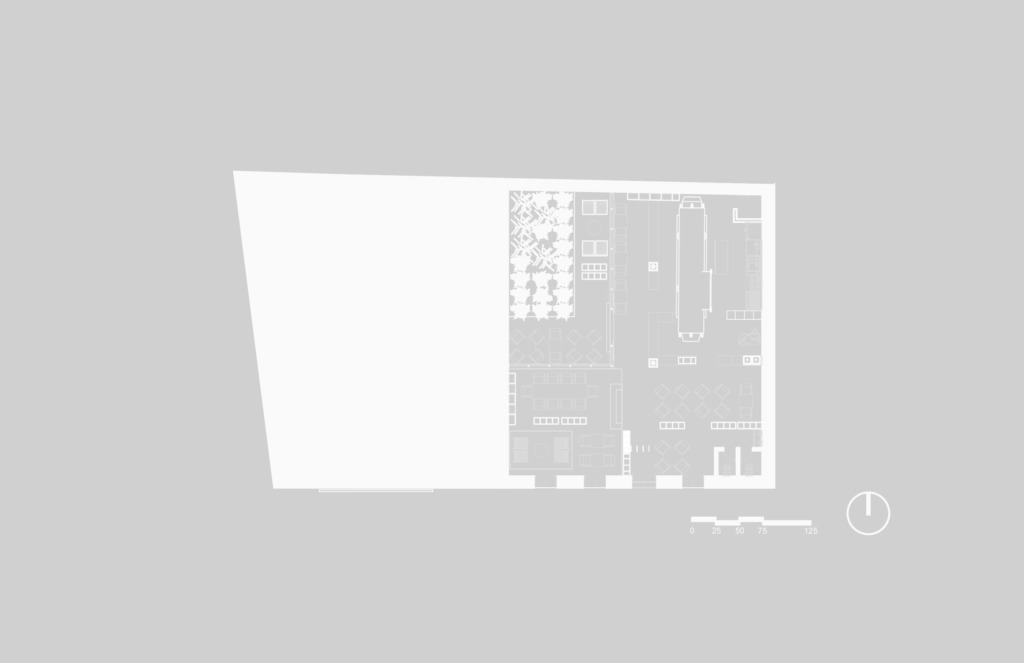Tosepan Kajfen: Community Coffee Shop
Cuetzalan, Puebla, México
2013 - 2015
Comercial
200 m2
Leonardo Neve, Diego Vilatela, Angel Valerio
Jesús Amezcua, Otli Campos, Roberto Martínez, Javier Flores, Roberto Tlatelpa
Mario Rentería, Alan Garrido
Patrick Lopez Jaimes
Built
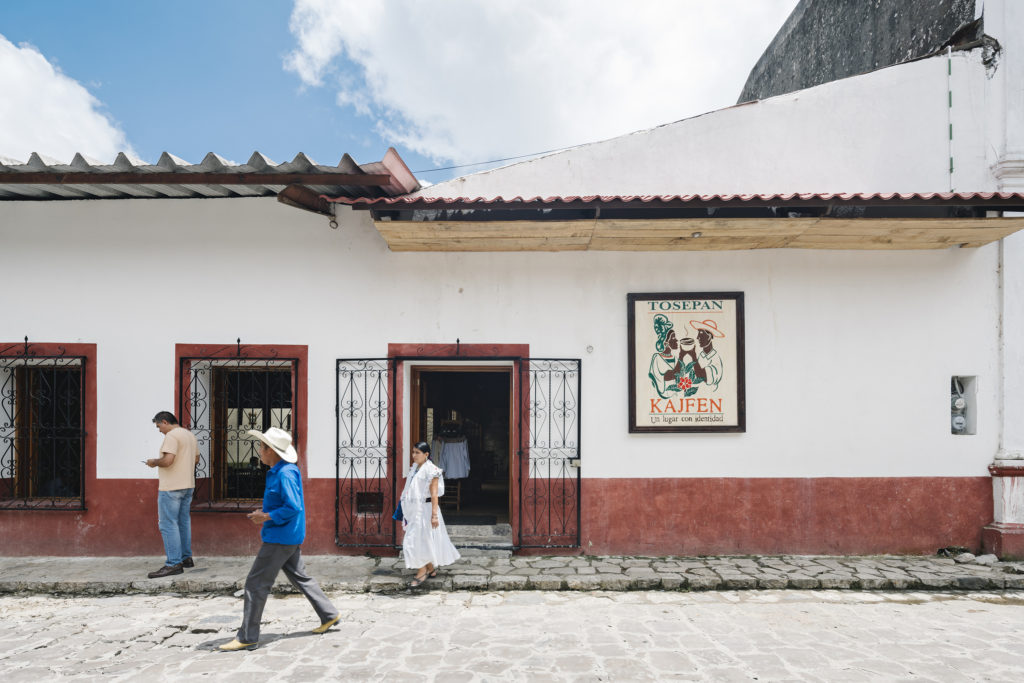
Tosepan Kajfen is a local Coffee Shop owned by the local Native American (Nahuatl) Community, in the Mexican mountains of the state of Puebla. The community is formed by numerous families of coffee farmers who targeted specific goals for the community and wanted to take part in the design process, hence, the project was developed through a social habitat production process, this way, and all the voices were considered for a project that aimed to become an additional source of income and had budget restraints.
One of the main goals was to have a convivial space for the local community that could at the same time invite outside visitors to understand the worldview and local customs of the Macehual. In addition, they wanted a space that would allow the opportunity to sell their local products from their bio-divers plantations without the need of intermediaries, promoting fair trade practices and a cooperative culture.
With the first operative coffee shop, located in the historical center of the magical town of Cuetzalan, the aim was to start a scalable franchise model that could be economically attractive for the farmers, and through this model preserve the local ecosystem and natural resources of their organic sustainable plantations. Consequently, for the interior design local natural materials were selected, this is why there is a predominance of oldhamii bamboo in walls and ceilings. This type of bamboo also employees extensive local artisans, providing a social benefit, and at the same time it allows a great variety of textures, which can be found in diverse constructive applications.
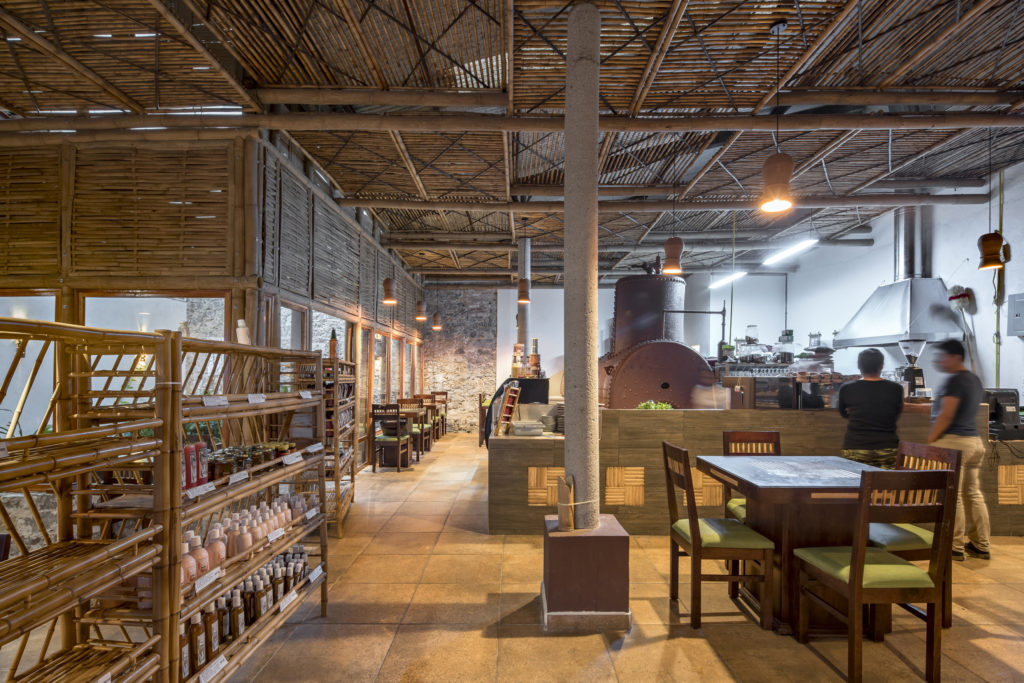
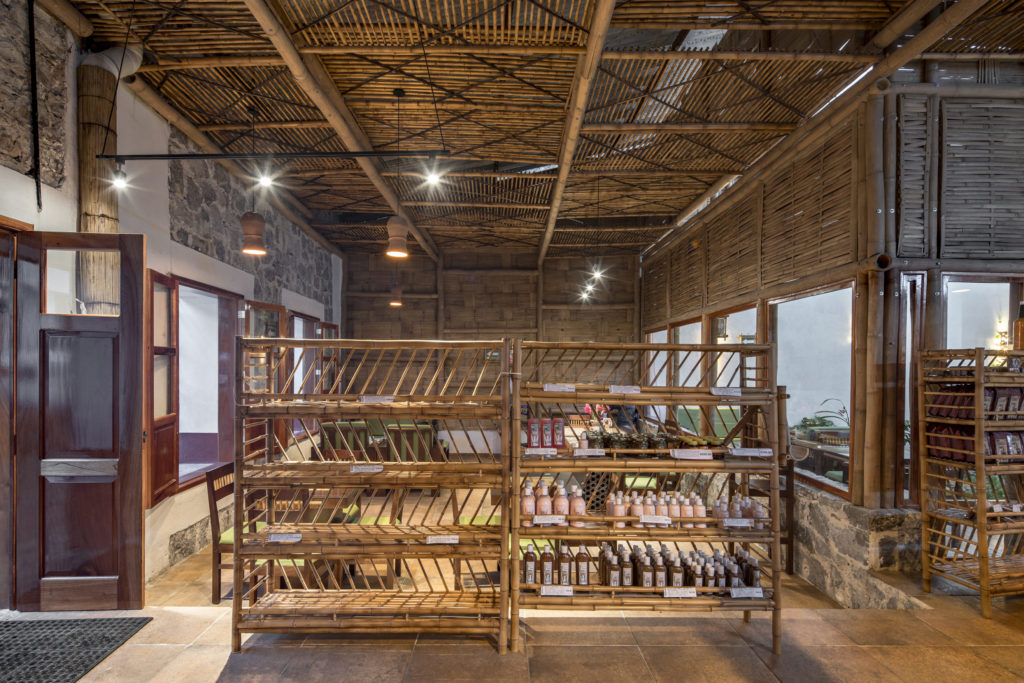
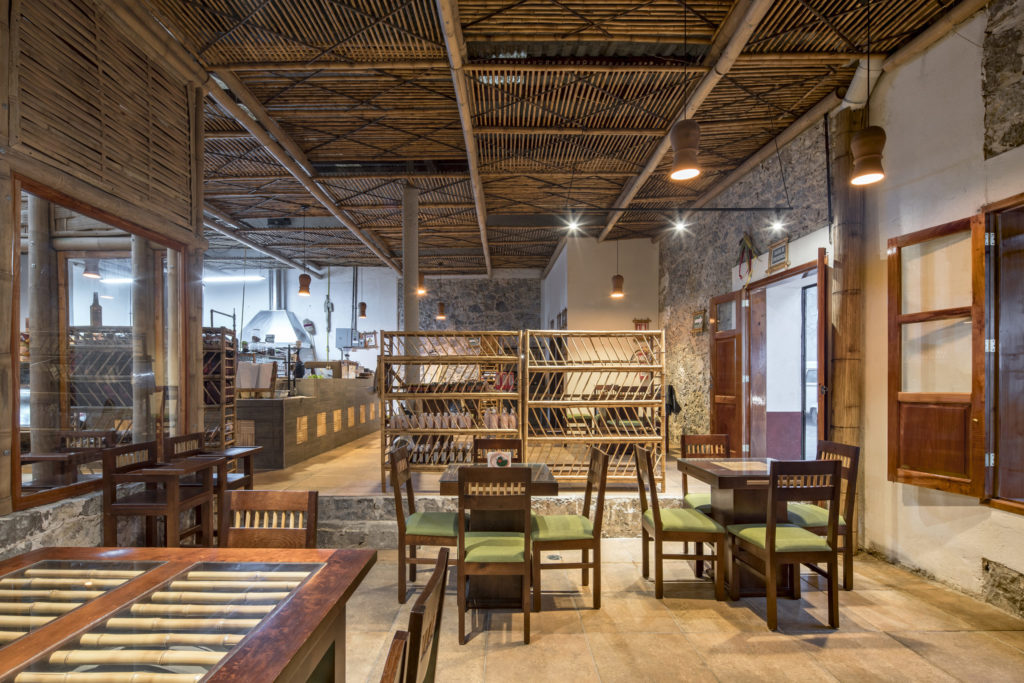
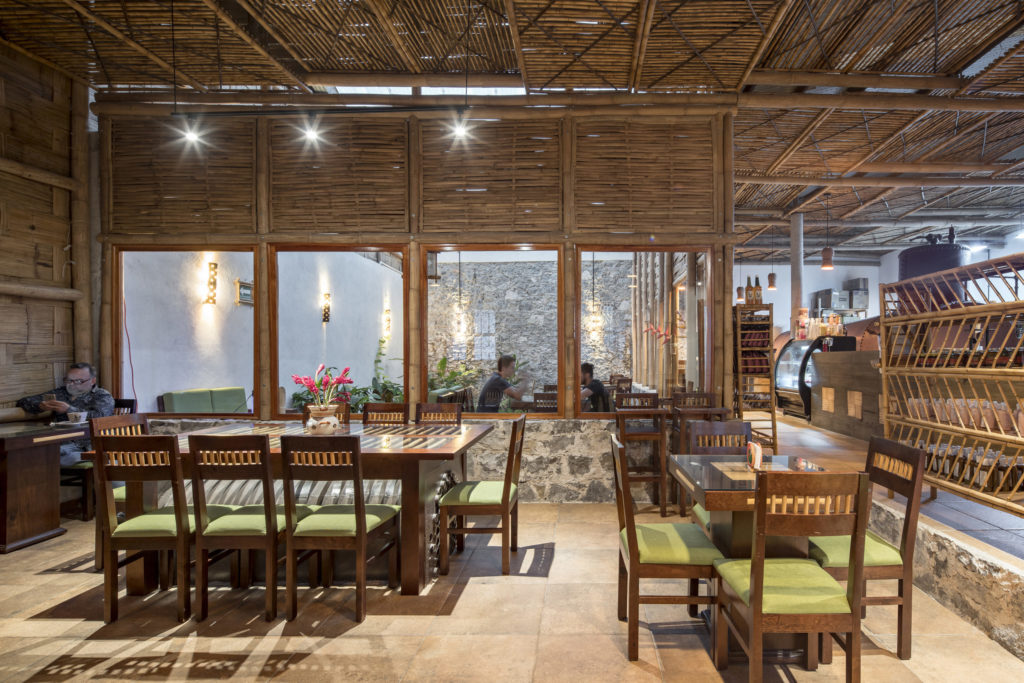
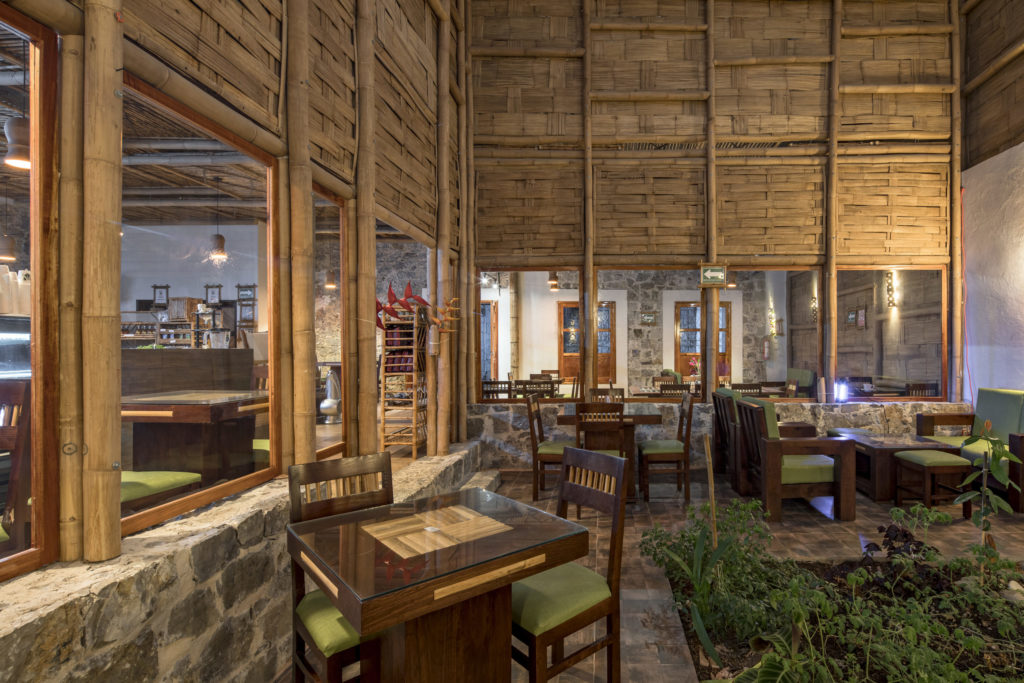
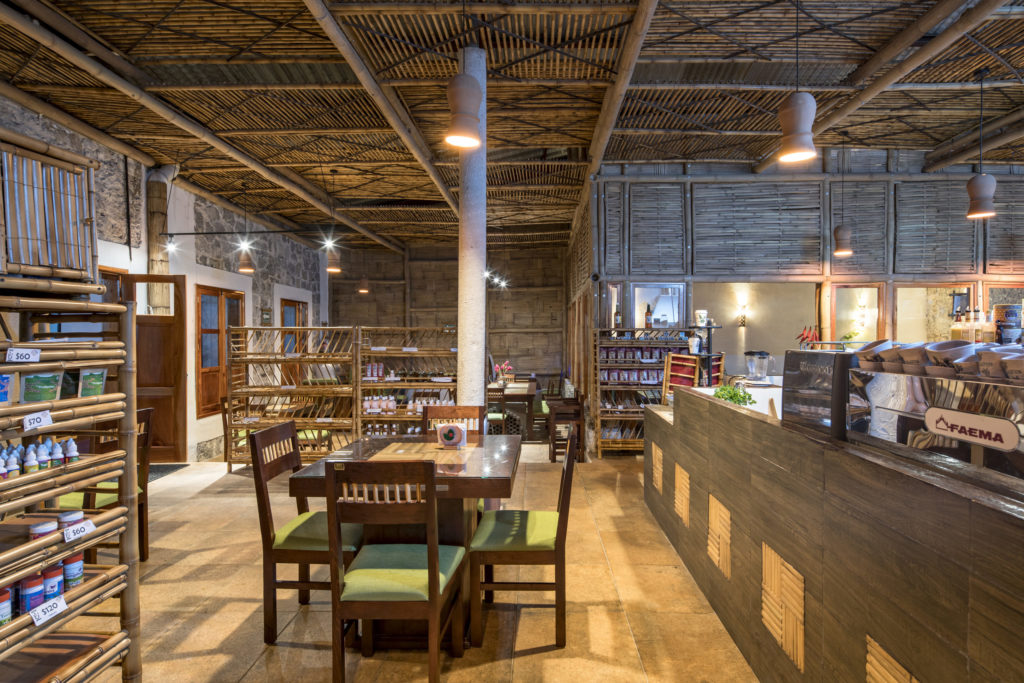
Additionally, another important component of the bio-diverse coffee plantation, is the local “Melipona” honey, which is cultivated through a millenary process in clay pots, consequently, lamps were designed with this same pots, as a poetic reminder of how the living elements can share live through the presence of light.
It’s also important to mention that the project seeks to rescue the historical legacy of this town, since it is located at a place called by the locals “Big Machine” were coffee used to be dried and toasted for its sell; The “Big Machine” remained visible as a central part of the project, as a reminder of this antique process. Additionally, an interior patio was installed, to reproduce the vegetative elements found at the bio diverse plantations, so the visitor can have an educational experience and contact with nature.
Another important concern for the farmers, was to be respectful with surrounding environment, consequently, water filters were installed for the capitation, and use of rain water, as well as a natural waste water system, so the waste of the shop wouldn’t pollute the clean water sources.
Finally, the project allows for a second face of growth, were local culture will be displayed as a cultural venue were dance, gastronomy and handcrafts will be displayed. We are trust in the initiative, and are confident in its success and the promotion of better opportunities and a clean environment for the community.
